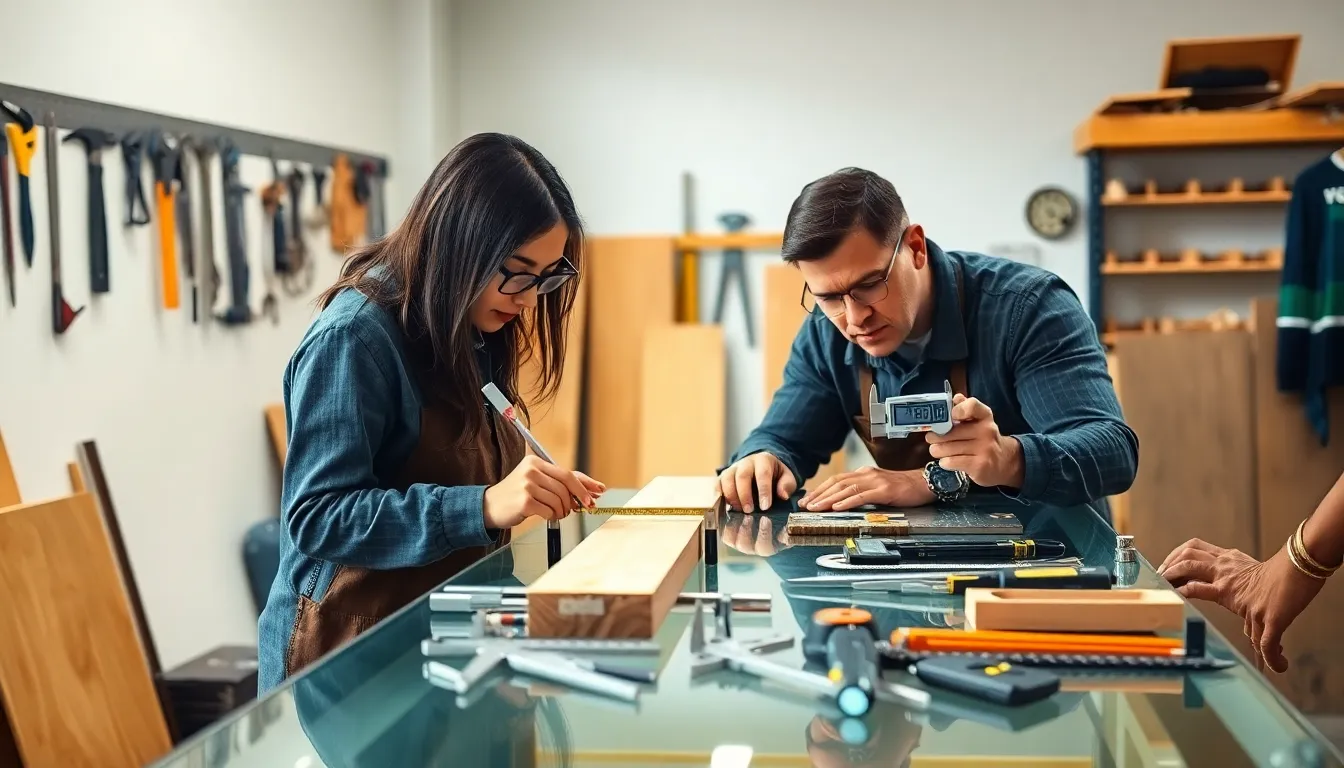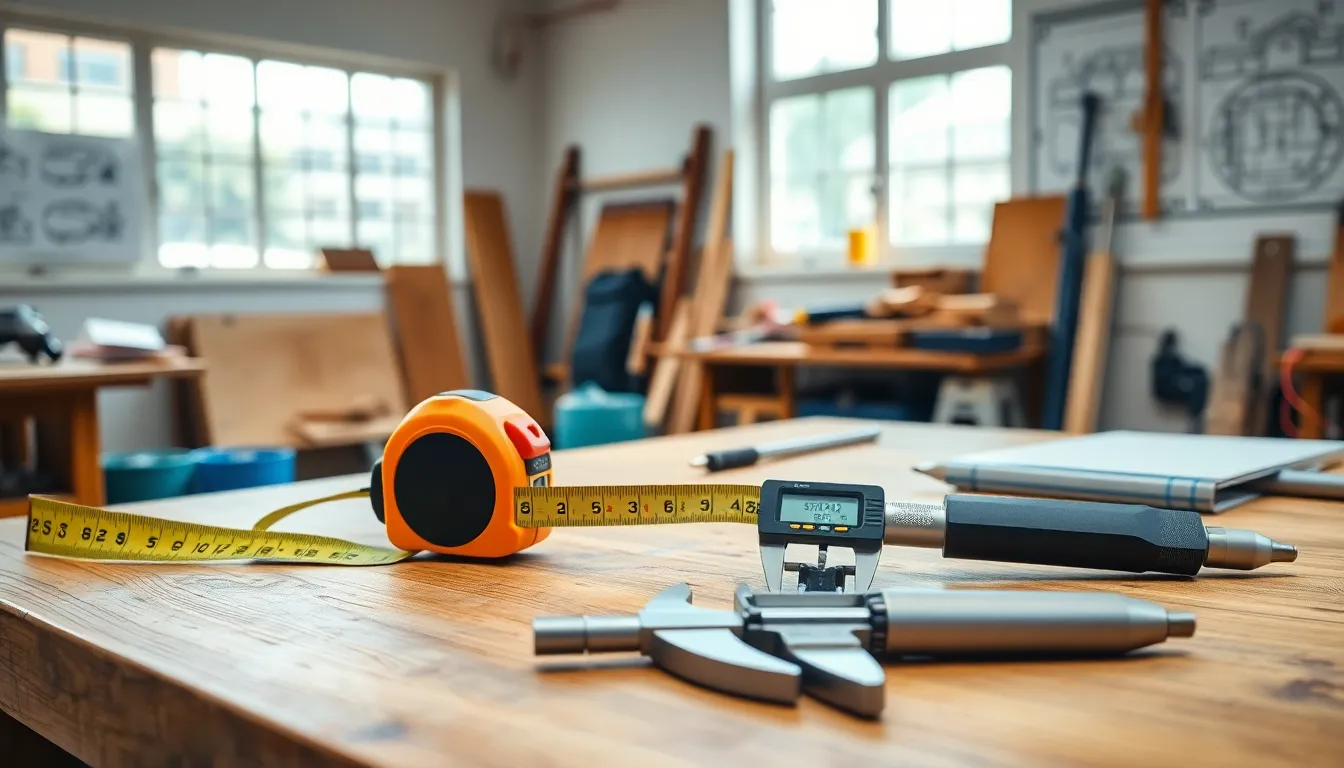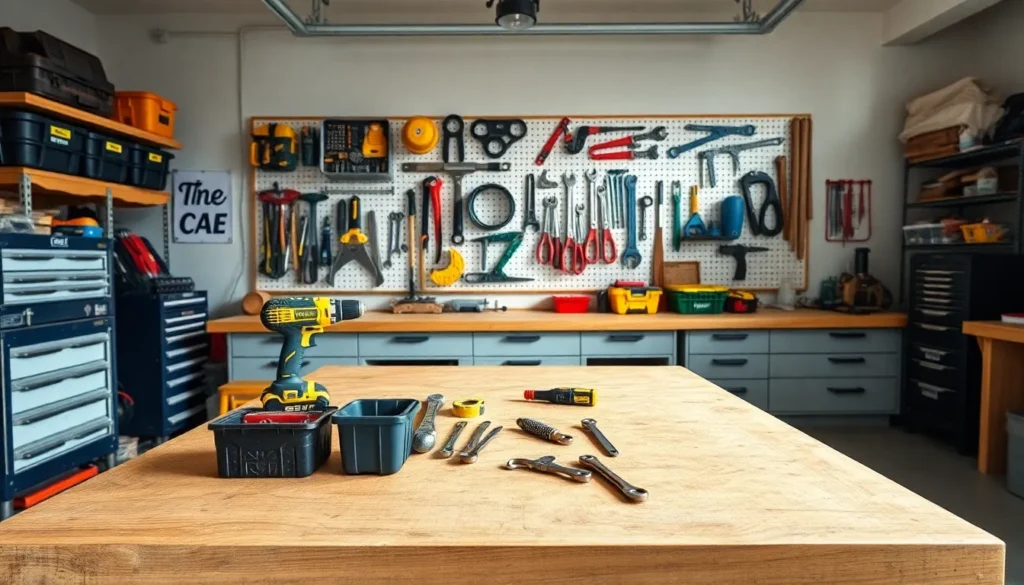Every seasoned craftsman knows that precision is the name of the game. Imagine building a perfectly crafted cabinet, only to discover that it doesn’t fit through the door. Oops. Fear not, because having the right measuring tools in the workshop can save the day. From rulers that actually measure to micrometers that can give you the minute details, investing in proper measuring instruments can elevate any project. Prepare to jump into the world of meassuring tools, where inches and millimeters matter.
Table of Contents
ToggleImportance of Accurate Measurement

Accurate measurements can make or break any project in the workshop. Imagine attempting to assemble furniture only to find mismatched pieces. The agony. Reliability in measurements enhances quality and minimizes waste, saving precious time and materials. Plus, it boosts confidence in craftsmanship. Take, for instance, a carpenter working on a bespoke piece: precise measurements ensure the results are just as envisioned.
Also, accurate tools significantly improve safety, too. Using incorrect measurements can lead to slips, trips, and worse. So, it stands to reason, accuracy is not just beneficial: it’s essential. In essence, measuring tools are like a compass for your workshop: they guide your work to the right destination without getting lost.
Whether it’s for woodworking, metalworking, or any crafting venture, understanding the importance of accurate measurement underpins successful results.
Types of Measuring Tools
In any workshop, a variety of measuring tools are essential for a range of tasks. Let’s explore the must-have apparatus:
1. Rulers and Tape Measures
These are the backbone of any measuring toolkit. Rulers provide straight edges and clear readings for shorter lengths, while tape measures excel in versatility, easily extending to measure larger distances. Both are handy for quick checks during projects.
2. Calipers
Calipers provide a high level of precision for measuring dimensions and depths. Available in both digital and dial forms, they are beneficial for automotive work, engineering, or whenever accuracy is key. Imagine fitting intricate components, you want those measurements to be spot on.
3. Micrometers
Taking precision to the next level, micrometers can measure with an accuracy of up to one-thousandth of an inch. These instruments are perfect for tasks requiring impeccable detail, such as machining or fine woodworking.
4. Levels
Levels ensure that projects are perfectly horizontal or vertical. Be it picture frames or heavy shelves, having a level is crucial to maintain structure integrity, and to avoid tilting.
5. Squares
Squares are fantastic for establishing right angles. Whether marking or cutting materials, a square guarantees that projects are aligned properly. Without one, you may find your project looking more ‘abstract’ than intended.
This diverse toolkit fosters creativity and allows craftsmen to tackle a myriad of projects with confidence.
Choosing the Right Measuring Tool
Choosing the appropriate measuring tool depends on the specific task at hand. For instance, when measuring large objects or spaces, tape measures are your best friend. Conversely, for intricate work that requires detail, calipers or micrometers would be more suitable due to their precision.
It’s important to consider the materials being worked on as well, certain tools are designed for specific types of materials, whether wood, metal, or plastic. Don’t forget to factor in the ease of reading and using each tool. Digital options often offer clear displays, which can be very helpful, especially for those new to measurements.
Tips for Using Measuring Tools Effectively
To truly master the art of measurement, following some best practices can vastly improve the process:
- Double-Check Readings: It’s a good habit to measure twice, cut once.
- Keep Tools Clean: Debris can affect accuracy, so regularly clean your tools to ensure reliable readings.
- Use Proper Techniques: Understand the nuances of each tool to maximize its effectiveness. For example, ensure the calipers are parallel when measuring.
- Stay Consistent: Use the same units of measurement throughout your project to avoid confusion. Switching between imperial and metric can create headaches.
Maintaining Your Measuring Tools
Maintaining measuring tools is just as crucial as using them correctly. Store tools in a dry environment to prevent rust and damage. Regularly inspect them for wear and tear. If necessary, recalibrate your tools, especially if they’re digital. A broken or inaccurate tool not only leads to wasted materials but can severely affect the final outcome of a project. Proper maintenance ensures that your measuring instruments always deliver the precision you need, keeping your projects on track and avoiding unwanted surprises.










